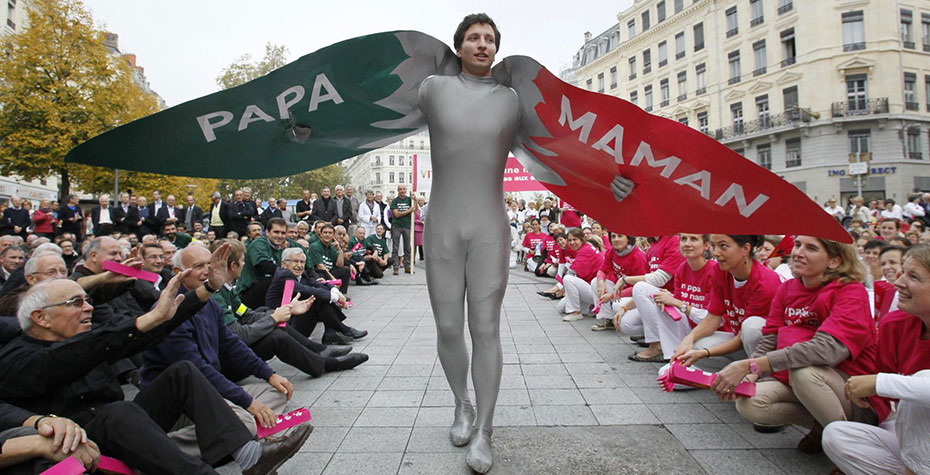Wellesley Professor Writes in Huffington Post on National Differences in Content and Style of Opposition to Same-Sex Marriage

Earlier this month, the French National Assembly passed a bill to allow same-sex couples to marry and adopt children. The bill, headed to the French Senate, is expected to be approved later this year. Opponents to the measure in France have been vocal, but in very different ways from same-sex marriage opponents in the United States, as Associate Professor of French Scott Gunther has observed. For starters, Gunther points out, in the United States we've yet to see an expression of protest involving a man in a bird costume performing an interpretive dance.
Gunther, author of The Elastic Closet: A History of Homosexuality in France, 1942-Present, recently wrote in the Huffington Post about differences between the way opponents of same-sex marriage in the United States and in France articulate their opposition.
"Explicit religious references have played a much smaller role in French marriage debates than they commonly do in the U.S. Indeed, any American news article about French gay marriage that has referred to France as a 'Catholic country' is a bit misleading," Gunther writes.
He describes the greater division between between church and state in France, as well as ceremonial differences, and even expressive differences, as the title of his post suggests: Gay Marriage Debates and Interpretative Bird Dances in France. So what bothers the French? Parenting. "Gay marriage opponents' primary concern with same-sex parenting has had to do with the alleged importance of sexual difference between parents for a child's well-being," explains Gunther, noting that gender roles and the notion of essential differences between the sexes is important in France.
Gunther is a specialist of contemporary French society. His research interests include: French media, gender, and sexuality in France, and France and the European Union. His book, The Elastic Closet, examines gay politics in contemporary France with a focus on the complex relationship between French republican values and the possibilities they offer for social change.
